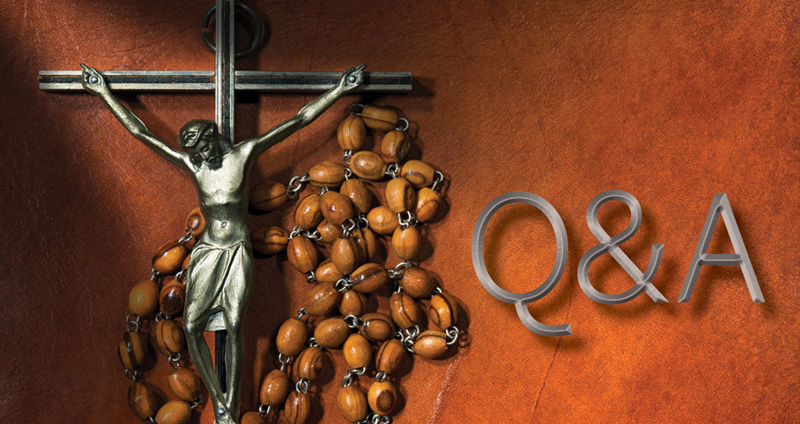
Q: Years ago, my oldest daughter was asked, “How many sacraments are there?” and she answered, “Seven for men and six for women.” Shouldn’t that be the official answer? Perhaps Pope Francis will balance the scales? (Beaufort, SC)
A: Of course, we know that there are seven sacraments in the Church. While Holy Orders is reserved to baptized men by divine mandate, the sacrament is for all Christians since all of us benefit from its ministry.
While the misplaced attempt to impose an answer that reflects ideology or identity politics onto theology might win a smile or an applause from some, it does harm to a truly integral and communal understanding of the sacraments, their divine institution, and their purpose within the life of the Church.
Q: When knowingly eating meat on Fridays was a mortal sin (years ago) and people died without confession of such, did they go to eternal hell? (Richmond, TX)
A: The custom of doing a penitential act on Friday, such as abstaining from meat, is traced all the way back to the early Church. Even in the first generations of our faith, Christians would mark Friday as a day of sorrow and self-abnegation since the Lord Jesus was crucified on that day of the week.
This discipline of the Church, therefore, should not be taken lightly. For example, many Catholics today forget that if they use the dispensation and choose to eat meat on a Friday outside of Lent, they are still bound to do some other act of penance. Friday is still a day of ascetical observance in our faith. In allowing local bishops’ conferences to dispense from the meat abstinence outside of Lent, Blessed Pope Paul VI clearly taught: “By divine law all the faithful are required to do penance.”
In terms of your specific question: The gravity of eating meat on a Friday is less about the actual eating of meat than it is about a willful neglect of a universal call to penance. Most people ate meat on a Friday (or eat meat on a Friday of Lent) out of forgetfulness or benign negligence. In such a case, the act is a venial sin.
If, however, someone willfully refuses to observe the call to repentance and eats meat in defiance of the Church (and the veneration owed to the crucified Body of our Lord), then the breaking of a meat abstinence is joined and surpassed by a grave sin of pride (and possibly gluttony). These are grave sins that must be confessed and could jeopardize our salvation.
Admittedly, in times past, well-intentioned catechists or religion teachers may have jumped a few steps and told children, “If you eat meat on a Friday, you’ll go to hell.” Such an instruction was overly simplistic and lacking in necessary precision. Whenever we speak about someone’s eternal life, every step must be explained and great care must always be given to the content and spirit of our teachings.
And so, if someone ate meat because they forgot it was Friday, then a simple act of penance or charity could be done in penance. If a person, however, refused to do penance, willfully broke from universal tradition, and failed to adequately reverence the Lord’s crucifixion, then a grave matter is present and sacramental confession should be made.
Father Jeffrey Kirby is administrator of Our Lady of Grace Church in Lancaster. Because he is moving on to other projects after the summer months, Father Kirby is no longer taking questions for this column.


